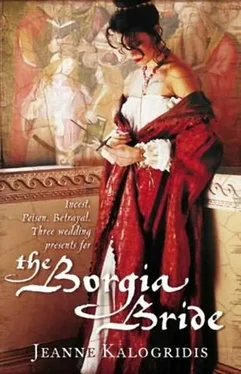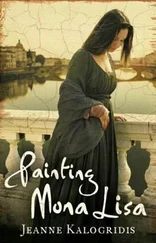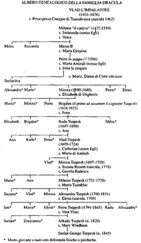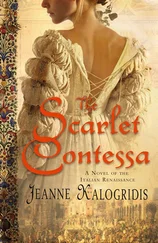‘His Majesty is gravely ill. He has asked for you.’
There was no time to dress properly. Donna Esmeralda fetched a black wool tabard, and held it behind me while I slipped my arms backwards into the opening, then pulled the flowing garment forward and secured it at my breast with a brooch. That, over my silk shift, would have to do. I waited as she then coiled my braid at the nape of my neck and fastened it with a pin.
I went out and followed the grim-faced young guard, who held a lantern to light our way. In silence, he led me to the King’s bedchamber.
The door stood wide open. Though it was night and the heavy curtains were drawn, the room was brighter than I had ever seen it. Every taper on the great candelabra was lit, and three oil lamps burned on the night table. Beneath the great gilded mantel, a large fire blazed, casting off enormous heat and glinting off the golden bust of King Alfonso.
Off in one corner, two young physicians conferred sombrely, quietly. I recognized them as Doctors Galeano and Clemente, reputed to be the best in Naples.
The bed-curtains had been pulled back, and in the centre of the bed lay my grandfather. His face was a dark mottled purple, the colour of Lachrima Christi. His eyes were squinted tightly shut, his lips parted; his breath came in short, sharp bursts.
Juana sat on the bed beside him, barefoot and unashamed to be wearing only her nightgown; her hair was loose, and a dark, waving tendril had fallen across her face. She gazed down at her husband with a look of extreme tenderness and compassion that I have witnessed elsewhere only in artists’ depictions of saints. The King’s left hand was enveloped between both of hers. I wondered at the love inspired by this man, capable of so many atrocities.
In a chair some distance away sat my father. He leaned forward, staring at Ferrante, fingers of both hands spread, pressing into his brow and temples: he wore an entirely unselfconscious look of dismay. His eyes glittered with unshed tears, reflecting countless tiny flames. He glanced up when I entered, then quickly turned away.
Next to him stood the royal brothers: Federico and Francesco, both of whom grieved openly; Federico sobbed without restraint.
The doctors acknowledged me at last. ‘Your Highness,’ Clemente said. ‘We believe His Majesty suffers from unchecked bleeding of the brain.’
‘Is there nothing that can be done?’ I asked.
Doctor Clemente shook his head reluctantly. ‘I am sorry, Your Highness.’ He paused. ‘Before he lost the power of speech, he called your name.’
I was too numbed to know how to respond to this, too numbed even to weep at the realization that the King was dying.
Juana lifted her serene face. ‘Come,’ she said to me. ‘He wanted to see you. Come sit next to him.’
I moved to the bed, and with the assistance of one of the doctors, climbed onto it so that I sat on my grandfather’s right, while Juana sat on his left.
Gently, I lifted Ferrante’s limp hand and squeezed it.
And gasped as his bony fingers gripped mine like talons.
‘You see,’ Juana whispered. ‘He knows you. He knows you have come.’
For the next few hours, Juana and I sat together in a silence broken only by an occasional sob from Federico. I understood why Ferrante, as he was dying, would cling to his wife; her sweet goodness no doubt brought him comfort. But I did not understand, at that moment, why he had called for me.
The King’s breathing gradually grew fainter and more irregular. He was gone for minutes before Juana finally realized he had not drawn a breath in some time, and called for the doctors to make a determination.
Even in death, he clung to us; I had to pry my hand loose from his grip.
I half-slid from the bed to my feet, and found myself facing my father. All signs of grief and anxiety had vanished from him; he stood before me, composed, commanding, regal.
He was now King.
My grandfather lay in state for a single day in the cathedral of Santa Chiara, which we royalty preferred for official functions due to its size and grandeur. It had always been used for funerals, as its chapels and naves housed the crypts of Neapolitan royalty. Behind the altar lay the Tomb of Robert the Wise, Naples’ first Angevin ruler: the grave site was topped by a towering monument, the top level of which showed the living King Robert, crowned and triumphant, upon his throne. Beneath lay a sculpture of the King in the repose of death, hands piously crossed upon a sceptre. To the right of the altar was the Tomb of Charles, Duke of Calabria, Robert’s only son.
In the early hours of pre-dawn, before the rest of the city woke to the news, our family filed past Ferrante’s washed, carefully posed corpse in its coffin.
His face was pinched and stern, his body shrunken and frail, with no trace of the leonine spirit that had once filled it. He was at last like the men in his museum: utterly powerless.
All that night, I had considered why my grandfather had liked me while he lived, why he had called for me in death. Hard and cold , he had called me proudly, as if these were qualities to be admired.
Perhaps he had needed the comfort of Juana’s kindness; perhaps he had also needed my strength.
I knew at once that my marriage to Jofre Borgia was now inevitable. My father had vehemently stated his opinion; the wedding was only a matter of time. There was no point in behaving like a child, in expressing anger over my fate. It was time to accept it, to be strong. I could rely on no one save myself: if God and the saints existed, they did not concern themselves with the petty requests of heartbroken young women.
After the family said its farewells to Ferrante, a feast was held in the Great Hall. There was no music that day, no dancing, but a great deal of talking and distractions.
I passed alone and unseen to Ferrante’s bedchamber. The bed-curtains were still pushed back, and the canopy swathed in black; the green velvet hangings were likewise draped in the colour of mourning.
One of the oil lamps on the night table still flickered with a faint, bluish flame. I lifted it, opened the door to the narrow altar room, and from there, passed into the kingdom of the dead.
Little had changed from the way I remembered it; the expired Angevin called Robert still welcomed me with a sweep of his bony arm. This time, I was not alarmed. There was nothing frightening here, I told myself, just a collection of tanned hide and bone propped against iron poles.
But two new corpses had been added to the collection since I last visited, more than four years ago. I walked up to the nearer of them, and held the lamp up to the mummy’s face. His marble eyes had dark brown irises painted on them; his beard and moustache were thick, his gleaming black hair luxuriant and curling. This was no fair-haired Angevin, but a Spaniard, or Italian. There was still a slight fullness to his features that spoke of recent demise. Alive, he had no doubt been a handsome man, who had laughed and wept, and perhaps been disappointed in love; he had known, too, what it was to be the victim of relentless cruelty.
Fearlessly, I pressed my fingers against the shining lacquered brown cheek.
It was cold and hard, like my grandfather and father.
Like me.
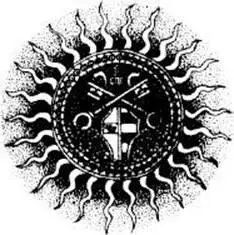
***
The reparation of the strained relationship between Naples and the papacy took time. I was not surprised when an entire month passed before I received the expected summons from my father.
I had prepared myself for the encounter, and reconciled myself to the thought of marriage to Jofre Borgia. The fact filled me with a strange pride; my father would expect his announcement to wound me, and be disappointed when it did not.
Читать дальше
Конец ознакомительного отрывка
Купить книгу
